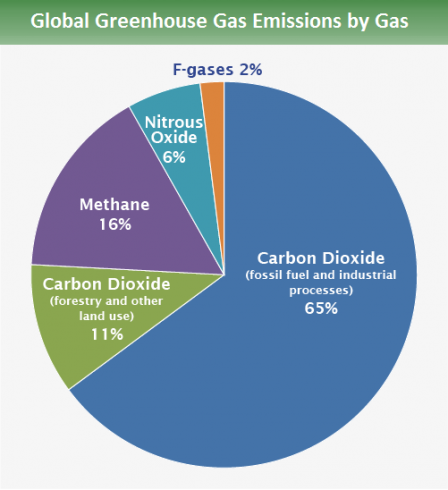Our global home is threatened by human activities driving global warming, acidification of the ocean, widespread species extinction, and exhaustion of limited and irreplaceable natural resources.
These disastrous impacts are all manifestations of the tragedy of the commons; the impacts of individual actions on the environment are not reflected in the cost of those actions to the individual. When consumers purchase fossil fuel, the price they pay does not include the cost of the impacts of the fossil fuel use on everyone as well as the environment — health impacts from air pollution, the cost of the military ensuring access to that fossil fuel, and the impacts of the resulting climate change on coastal property, the supply of irrigation water from mountain snowpack, forest fires, flooding from wetter storms, etc. Those social costs are typically borne by victims (some not yet born), by taxpayers, and by our collective insurance premiums. And this list doesn't even mention impacts on plants and animals, or the overall health of the ecosystem.
Preventing those impacts is the primary challenge for this generation. Global poverty and disease are thankfully declining, but the relatively stable environment in which our civilization developed over the last 10,000 years is threatened by human activities that are not restrained by consideration of social costs in individual, corporate, and public decision making.
There is no single solution to such enormous challenges, but there are many tools available. The book Drawdown, edited by Paul Hawkins, describes 100 ways to either reduce greenhouse gas emissions or pull carbon dioxide from the atmosphere. The most effective way reduces emissions by 3 Gigatons of CO2 equivalent greenhouse gases per year, but the total of all is 33 Gt/yr, which is far larger than the current 10 Gt/yr global emissions (https://www.epa.gov/ghgemissions/global-greenhouse-gas-emissions-data).
Implementing these methods to their full potential will not happen without incentives. In 2015, all of the nations of the world met in Paris and pledged commitments to reduce emissions substantially, but not enough to prevent a global warming of 5° F. Moreover, our current president has set in motion the withdrawal of the U.S. from the Paris Climate Agreement.
We need a durable solution to climate change. That requires approval by Congress as well as the President. Congress failed to pass climate legislation in 2009, when Democrats controlled the House and had 60 seats in the Senate. Given how rarely one party controls the White House as well as Congress with a super majority, it is clear that any durable and substantial contribution of the U. S. to mitigating climate change will require Republican support.
Such a solution has been introduced in Congress with bipartisan sponsorship. The Energy Innovation and Carbon Dividend Act is not the only legislation needed to prevent climate change, but with aggressive, predictable and sustained carbon pricing, with the revenue returned to the American people on an equal basis, it is designed to reduce U.S. carbon emissions by 90% by 2050 without hurting the economy, growing government, or restricting personal freedom. Passage would be a huge step toward limiting global warming.
I am going to give a public presentation on this legislation at 7 pm on Wednesday April 3rd in the Richland Public Library. There will be plenty of time for questions and answers. And you'll learn how you can help build the political will for this legislation. Come and invite your Republican friends!
Steve Ghan,
Citizens Climate Lobby


